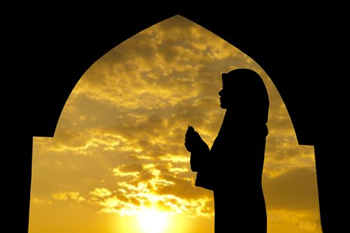 Abu Dhabi, Jun 25: The Roads and Transport Authority (RTA) has announced the timings for services during the holy month of Ramadan covering customer service centres, car parks, public buses, Dubai Metro, marine transit modes, driving institutes, and vehicles testing and registration centres.
Abu Dhabi, Jun 25: The Roads and Transport Authority (RTA) has announced the timings for services during the holy month of Ramadan covering customer service centres, car parks, public buses, Dubai Metro, marine transit modes, driving institutes, and vehicles testing and registration centres.
“The customer service centres will deliver services at different times from Sunday to Thursday where Umm Al Ramool, Barsha, Deira and Karama Centres will open from 9am to 12 noon, and Tawar, Manara, Awir and Jumeirah (JBR) centres will open from 9am to 6pm,” said Moza Al Murri, Director of RTA Marketing & Corporate Communication.
Ramadan working hours for UAE Federal Government offices.
“As for the timing of activating the paid parking zones in Dubai Emirate, the fee will be activated in all car parks coded A and B, except the Fish Market and Tecom Zone (Dubai Media City and Internet City), and the Knowledge Village will be, from Saturday to Thursday, from 8 am to 1 pm, and from 7 pm to 12 am (midnight). The fee will be activated in the Fish Market coded E throughout the week from 8 am to 1 pm, and from 4 pm to 11 pm. Tecom and Knowledge Village parking coded E will have the fee system activated from 8 am to 6 pm from Saturday to Thursday. The fee will remain active in the multi-level parking terminals 24 hours a day,” said Al Murri.
Ramadan working hours for private sector
“Bus services will be provided throughout the week and public bus stations, such as the main stations of the Gold Souk and Ghubaiba, the service will start at 5.10am and end at 11.50pm, subsidiary stations, such as Al Qusais, Satwa and Quoz, will operate from 5.30 am to 11.45pm, Jebel Ali Station will operate from 6am to 9.30pm, and the Metro feeder stations such as Rashidiya, Mall of the Emirates, Ibn Battuta, Burj Khalifa and Etisalat stations, will start business at 5.15 am and close at 12.15am (after midnight).
Ramadan likely to begin on June 29; Eid al-Fitr expected on July 28
“Commercial transport and inter-city bus services will be operational throughout the week. The service of main stations, such as Ghubaiba, will be provided 24-hours a day, and in subsidiary stations, such as the Union Square, Sabkha, Deira City Centre, and Karama, the service will start at 5.30am and continue to midnight. External stations, such as Sharjah (Jubail-Bur Dubai) will be open 24-hours a day, Abu Dhabi Station will operate from 5.00am to 11.55pm, Hatta station will operate from 5.30am up to 9.30pm, Fujairah station will be open from 5.50am until 9pm, and Ajman station will be open from 5.30am to 9pm,” she said.
Ramadan Fast: 15 hours in UAE
“As for the metro service timings, all stations on the Red Line will open on Thursday from 5.30am to 1am (following day), on Friday from 1pm to 1am (following day), and from Saturday to Wednesday from 5.30am to 12 midnight. All stations on the Green Line will open on Thursday from 5.50am to 1am (following day), on Friday from 1pm to 1am (following day), and from Saturday to Wednesday from 5.50am to 12. midnight,” stated Al Murri.
Ramadan 2014: Dubai Police readies cannon
Explaining the timing of the marine transit modes, she said: “Water transit means will be operational throughout the week as follows: Water Bus at the Dubai Creek station will operate from 8am to 12am (midnight) and at the Marina Mall station the service will operate at different timings at 12 noon, 4pm, 8pm and 12 midnight. At Ghubaiba and Festival City stations, it will operate from 4pm to 12 midnight. The Dubai Ferry at the Marina Mall will operate from 11am to 5pm, and at 6.30pm, whereas at Ghubaiba station it will operate at 11am.
Ramadan 2014: Top tips on healthy eating
“Vehicle testing and registration services will be available at two periods, from 9am to 3pm, and from 9pm to midnight at the following service providers: Tamam, Wasel (Arabi Centre), Enoc, Shamil, Mumayaz, Shirawi, Cars and Tasjeel. Other service providers such as Wasel Vehicles Testing at Jadaf, Enoc at Barsha, Enoc at Tawar, and Quick Vehicles Testing Centers will operate around-the-clock,” said Al Murri.
Dubai Police announces prison timings for Ramadan
General visiting hours to inmates in the Central Prison for all nationalities is on Friday and Saturday. For women between 9.30am and 10.30am and for male prisoners, between 10.30pm and 11.30pm over the weekend.
Meanwhile, Friday visiting hours for inmates of the Misdemeanour and Violation Detention facility, along with the female prison, is between 9.30am and 10.30am for women, which is limited to citizens and other Arab nationalities. Men can be visited between 10.30pm and 11.30pm of the same nationalities.
On Saturdays the time remains the same for women and men, but is applicable to all nationalities.





Comments
Add new comment